Portal:Science
| Main page | Main topics & Categories | Related portals & WikiProjects | Things you can do |
Science portal
Science is a neutral, rigorous, systematic endeavor that builds and organizes knowledge in the form of testable explanations and predictions about the universe.
The earliest written records of identifiable predecessors to modern science come from Ancient Egypt and Mesopotamia from around 3000 to 1200 BCE. Their contributions to mathematics, astronomy, and medicine entered and shaped the Greek natural philosophy of classical antiquity, whereby formal attempts were made to provide explanations of events in the physical world based on natural causes. After the fall of the Western Roman Empire, knowledge of Greek conceptions of the world deteriorated in Western Europe during the early centuries (400 to 1000 CE) of the Middle Ages, but was preserved in the Muslim world during the Islamic Golden Age and later by the efforts of Byzantine Greek scholars who brought Greek manuscripts from the dying Byzantine Empire to Western Europe in the Renaissance.
The recovery and assimilation of Greek works and Islamic inquiries into Western Europe from the 10th to 13th century revived "natural philosophy", which was later transformed by the Scientific Revolution that began in the 16th century as new ideas and discoveries departed from previous Greek conceptions and traditions. The scientific method soon played a greater role in knowledge creation and it was not until the 19th century that many of the institutional and professional features of science began to take shape, along with the changing of "natural philosophy" to "natural science".
Modern science is typically divided into three major branches: natural sciences (e.g., biology, chemistry, and physics), which study the physical world; the social sciences (e.g., economics, psychology, and sociology), which study individuals and societies; and the formal sciences (e.g., logic, mathematics, and theoretical computer science), which study formal systems, governed by axioms and rules. There is disagreement whether the formal sciences are science disciplines, because they do not rely on empirical evidence. Applied sciences are disciplines that use scientific knowledge for practical purposes, such as in engineering and medicine.
New knowledge in science is advanced by research from scientists who are motivated by curiosity about the world and a desire to solve problems. Contemporary scientific research is highly collaborative and is usually done by teams in academic and research institutions, government agencies, and companies. The practical impact of their work has led to the emergence of science policies that seek to influence the scientific enterprise by prioritizing the ethical and moral development of commercial products, armaments, health care, public infrastructure, and environmental protection. (Full article...)
Featured article -
Selected image
Selected biography
Barbara McClintock (June 16, 1902 – September 2, 1992) was a pioneering American scientist and one of the world's most distinguished cytogeneticists. McClintock received her PhD in botany from Cornell University in 1927, where she was a leader in the development of maize cytogenetics. The field remained the focus of her research for the rest of her career. From the late 1920s, McClintock studied chromosomes and how they change during reproduction in maize. She developed the technique to visualize maize chromosomes and demonstrate genetic recombination by crossing-over during meiosis—a mechanism by which chromosomes exchange information. She produced the first genetic map for maize, and she demonstrated the role of the telomere and centromere. She was awarded prestigious fellowships and elected a member of the National Academy of Sciences in 1944.
More did you know...
- ...that space artist Jon Lomberg (artwork pictured) was Carl Sagan's principal artistic collaborator on many projects such as Cosmos and the Voyager Golden Record?
- ...that NASA astronaut Stephen Robinson has logged 497 hours in space?
- ...that Othniel Charles Marsh named two species of the dinosaur Coelurus from the same quarry, not knowing that the bones belonged to the same skeleton?
- ...that the type specimen of Dromicosuchus had damage to its jaw and neck that may have been inflicted by the teeth of the large carnivore it was found underneath?
- ...that the scientific name of the common Australian garden fungus Aseroë rubra means 'red disgusting juice'?
Topics and categories
Science News
- 16 June 2023 –
- The village of Brienz/Brinzauls in Grisons, Switzerland, is narrowly missed by an overnight 2 million m3 (71 million cu ft) rockslide. The village of 128 residents had been evacuated in May after scientists predicted the imminent rockslide. (BBC News)
- 16 June 2023 – 2023 in archosaur paleontology
- A study in Science Advances reveals that Chilean Antarctic Institute scientists have discovered fossils from an unprecedented herbivorous hadrosaur called Gonkoken nanoi, which inhabited Patagonia 72 million years ago. (CNA)
- 15 June 2023 – 2023 in archosaur paleontology
- Researchers from the Natural History Museum in London, United Kingdom, discover the fossils of a herbivorous dinosaur species named Vectipelta barretti on the Isle of Wight. The ankylosaur, with "blade-like spiked armor", is the first of its kind found on the island in 142 years and will be added to the collection at Dinosaur Isle for public display during the summer. (CBS News)
- 14 June 2023 –
- At the International Society for Stem Cell Research's annual meeting in Boston, Massachusetts, United States, developmental biologist Magdalena Żernicka-Goetz reveals that American and British researchers have generated the world's first synthetic human embryo-like structures using stem cells. Żernicka-Goetz suggests that the findings could provide insights into the causes of miscarriages. (CNN)
- 12 June 2023 – Discoveries of exoplanets
- Astronomers announce in the journal Nature Astronomy the discovery of BEBOP-1c, an exoplanet orbiting the binary star system, TOI-1338. The system is the second discovered to have more than one circumbinary planet. (Space.com)
- 7 June 2023 –
- In a report published in Biology Letters, researchers reveal the first-known case of facultative parthenogenesis or a "virgin birth" in a crocodile, where a female American crocodile living in isolation at a Costa Rican zoo laid an egg of a fully formed stillborn crocodile that exhibited parthenogenesis. Researchers suggest that the findings could provide insights into the reproduction of crocodile ancestors, including dinosaurs and pterosaurs. (USA Today)

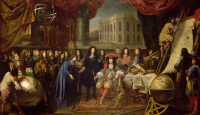


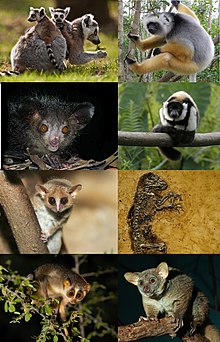

.jpg/300px-Mars_close_encounter_(captured_by_the_Hubble_Space_Telescope).jpg)






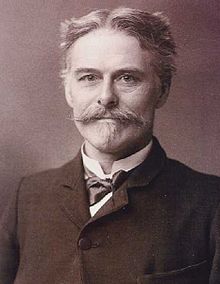
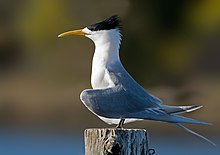
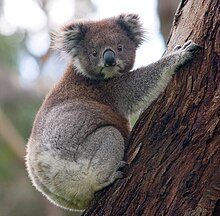





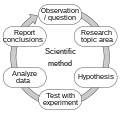







.jpg/80px-Sceptical_chymist_1661_Boyle_Title_page_AQ18_(3).jpg)








_Venenbild.jpg/120px-William_Harvey_(1578-1657)_Venenbild.jpg)

.jpeg/120px-Painting_of_Volta_by_Bertini_(photo).jpeg)



.png/85px-Albert_Einstein_(Nobel).png)


.jpg/120px-Template_from_Crick_and_Watson’s_DNA_molecular_model%2C_1953._(9660573227).jpg)

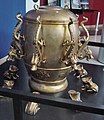






.jpg/105px-Galileo_Galilei_by_Ottavio_Leoni_Marucelliana_(cropped).jpg)






